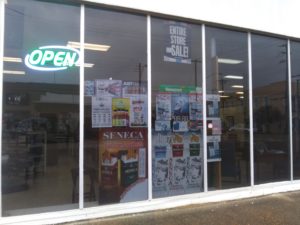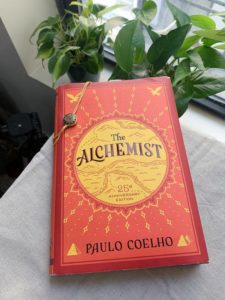Here I am as a baby with my brother and mother. Alaskans start to love the cold at an early age!
“ALASKA?!! How did you ever hear about Millsaps??”
“Is it freezing where you live?”
“Do you live in an igloo?”
These are the questions I’m always asked when people find out I am from Alaska. For anyone wondering, I do not live in an igloo, and the temperatures can fall as low as minus 30 degrees Fahrenheit.
As for how I heard about Millsaps, during my college application process I bought a book entitled Colleges That Change Lives, by Loren Pope. While I was reading this book and analyzing every college, Millsaps caught my attention. To me, Mississippi sounded like a foreign place. None of my family or friends had ever resided in the South, so I was never exposed to the culture. I was born and raised in Anchorage, Alaska–making me a Sourdough, what we call anyone who has spent a winter in Alaska.
However, Mississippi has intrigued me ever since I watched The Help as a naive 11-year old girl. This movie opened my eyes to Mississippi’s complex history, making me excited to tour Millsaps and immerse myself in all the state has to offer. The moment I stepped on campus, I knew that this was where I belonged. Southern hospitality wrapped me in a blanket of love and warmth. The teachers seemed to truly care about their students, my tour guide was impeccable, and I just knew that this was a place where I could thrive. My instincts told me to choose Millsaps, so I decided to follow them and trust the process.
I am not going to lie to you: coming to Millsaps from Alaska definitely was not a smooth transition. I had toured Millsaps in February of my senior year, so you can imagine my utter shock when I stepped off the plane in Jackson in mid-August to move into my dorm. I was drenched in sweat after walking five minutes to our rental car, but I tried to remain positive.
However, panic hit me full force once my parents left. That’s when the reality of my situation became clear to me: I was completely alone in a foreign land with no one who could truly empathize with me. Sure, there were foreign students, but they were given special consideration because they were not expected to automatically know the social norms in the South. Most people I encountered believed I should be familiar with the way things are done here, because I’m an American. With absolutely no previous experience in the South, I had an extremely hard time integrating myself into the culture. In the South, there are an immense number of nuances that I was not accustomed to, resulting in a very rocky first few months here.
For example, Southern speech was alien to me. I had heard Southern accents in movies, but they sound different in person, and I struggled to understand what people were saying. I distinctly remember a student in my Connections class during the fall semester of my freshman year, who had the thickest Southern accent I had ever heard in my life. Every time this student spoke, I struggled to make sense of what he was saying. There were also many occasions when I even had to ask my professors to repeat certain sentences, as their accents made it difficult for me to understand them. It was as if I was speaking a different language from everyone else around me.
I was told constantly that I was being rude because I never addressed adults as “sir” or “ma’am.”
In Alaska, speaking formally is extremely uncommon, and we usually just call people by their first names. Even though I am now a senior here, I never use “sir” or “ma’am” as my Alaskan way of speaking is ingrained deeply in me. Also, I know everyone here loves to say “y’all”, but I absolutely refuse to use it. No self-respecting Alaskan would be caught dead using this phrase. If I did, most Alaskans would think I was a Texas oilman. However, I do use “hot mess.”
As time went on, I concluded that the differences in the South were not necessarily negative. During my first few months here, I would constantly tell everyone I saw how much better Alaska was than Mississippi; I refused to accept the uniqueness of the South. I was unhappy because I wanted to go back to Alaska–my comfort zone. Mississippi and the South challenged me in more ways than I could have imagined, which was frightening to me. But nobody ever grows by taking the easy path, so I made a pact with myself to engage with the community and the people who call this amazing place home.
Through internships at Murrah High School, the Mississippi Museum of Art, and a tutoring nonprofit, I saw a whole different side of Mississippi. I became friends with activists who are working on improving the state and fighting the challenges which are thrown at it, from Jackson’s water crisis to inequalities in education and income.
Coming to Millsaps has shown me the importance of embracing new people and new cultures. What makes America so special is that we truly are a melting pot of a nation. This country is filled with people from all different walks of life, and by choosing to attend Millsaps, I have been able to experience a culture I probably never would have been able to otherwise, and for that I am extremely grateful. If you had asked me three years ago, I would have told you that I could not wait to graduate. As a current senior, I can tell you that I will leave Millsaps in May with a very heavy heart. Loren Pope’s book was correct: Millsaps definitely has changed my life.


